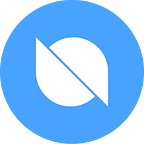Ontology Tech Viewpoint | If There Is No Suitable DAO, Why Not Build One Yourself?
It can be said that in the Web3 space, you’re not truly involved if you haven’t been involved in a DAO. Without having set up a DAO, then Web3 applications seem to be behind the times.
Are DAOs really that important? 🤔
DAOs are very much like a blockchain based “company”. They encode management and operating rules on the blockchain in the form of smart contracts, thereby avoiding centralized control or third-party intervention. In today’s Web3, where DAOs are the trend, building a well-established DAO is a key part of many organizations and applications. When forming a company we may need to consider tax, finance, organizational structure, compensation system, etc. In fact, the formation of a DAO will also encounter such issues.
This article will focus on the construction of a DAO, to introduce the problems you will encounter in setting up a DAO, and the tools and products needed to solve these problems.
Establishment of DAO
In real life, setting up a company requires registration with a business bureau, and setting up a DAO will probably also require a realistic legal framework. Of course, you can choose to skip this step, but as a DAO that wants to grow in the long term, it will inevitably involve signing legal documents and other issues, and will then need a body to do all of the above.
Of course not all DAOs have the capacity and funding to put together a legal team, so there are now related projects on the market to help DAOs with the formation problem, such as Syndicate and Upstream Collective. Syndicate, for example, is a protocol that simply creates an organization for the user, adds its members, designs a legal structure for the DAO organization based on the needs of the creator, and creates the legal subject as well as providing a template for the protocol document.
DAO’s Communication
Since DAO members are located all over the world, participation is mainly online. Therefore, DAOs need a tool for convenient and timely communication among members. At present, there are two main communication tools used within DAOs, Discord and Telegram, and most projects prefer Discord.
The advantage of Discord is that it can subdivide the channels and classify the DAO members, complete a simple organizational structure, and have a simple bot service to solve some administrative duties and process routine affairs. The disadvantage is that the number of channels is too many, and the “noise” generated by them is easily distracting, so that participants cannot get the news in time. Therefore, some DAOs use Telegram for daily communication. Recently, the security of Discord is now being questioned.
Collaboration in DAO
Since the epidemic, the “work-from-home” approach is increasingly accepted by companies. In order to ensure the collaboration and efficiency of this way of working, remote collaboration tools are becoming more and more abundant and useful. Therefore, the current DAO collaboration tools mainly rely on traditional office software, such as Notion, Google docs and other tools. Of course, with the development of DAOs, there will definitely be collaboration tools specifically for Web3, such as Dework and Layer3, which have the trend of development in this area.
Incentives for DAOs
DAO participants are not all “do it just by love” type of people, “salary” is also one of their motivations. Nowadays, the mainstream DAO incentive model is usually to pay participants the “salary” corresponding to their contributions, and the overall logic is like PoW — more work= more pay. Therefore, the acceptance of DAO members’ work results and the corresponding incentive payment are especially important.
Among the existing products, Utopia labs and Parcel are the tools that can help DAOs to pay contributors and assess their contributions.
Conclusion
Of course, in addition to the above tools there are also decentralized multi-signature data clients for financial management, decentralized identity-based reputation scoring systems for membership management, and so on. As DAO is accepted in more fields, the application tools dedicated to DAO construction and management will be gradually enriched and refined, helping DAOs to develop better.
Follow us on social media!
Ontology website / ONTO website / OWallet (GitHub)
Twitter / Reddit / Facebook / LinkedIn / YouTube / NaverBlog / Forklog
